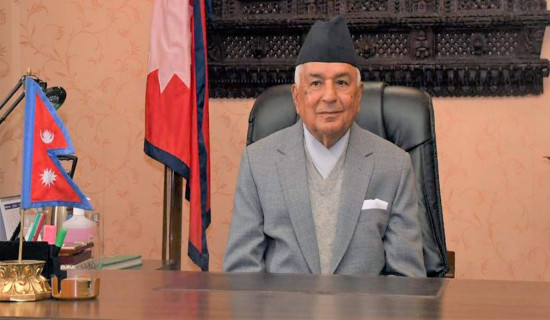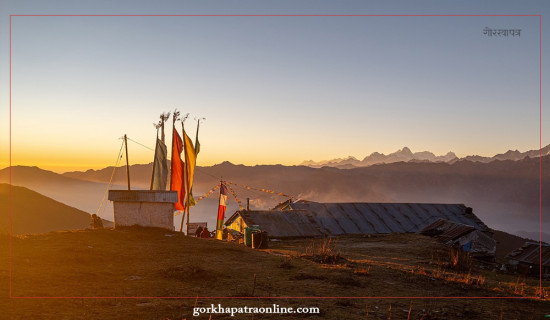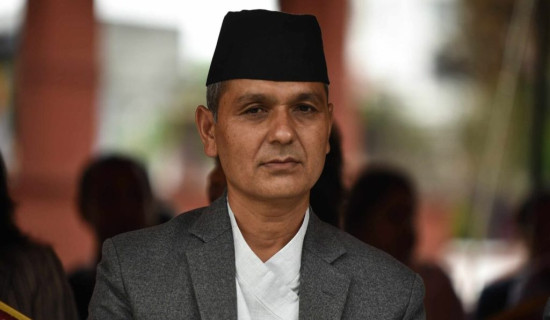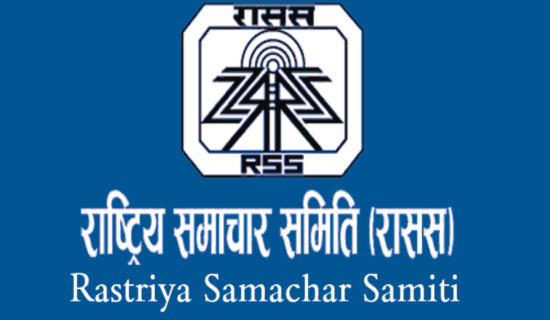- Thursday, 19 February 2026
Seat Sharing Conundrum
Even after weeks of deliberations, the five-party ruling allies are yet to decide on the share of seats for federal and provincial elections. Given the number of seats up for grabs under the direct election for the House of Representatives, unreasonable demands from parties appear tough to meet. The constituency distribution task has struck snags, despite the parties' requirement to submit a short list of nominees for the proportional system on September 18 and 19. They must first reach an agreement on constituency sharing.
With 165 seats in the HoR under the direct election system, the parties have demanded more seats than can be apportioned to them. While the Nepali Congress has asked for 100 seats, the Maoist Centre has 60, Unified Socialist 40, Janata Samajwadi 32, and Rastriya Janmoracha 2. If one looks at these claims, the total reaches 234, an impossible proposition to achieve. Such an appeal by each individual party is nothing but a pressure ploy to have enough seats to contest. At the end, allies have to accept the feasible number of spots based on criteria the task force has thrashed out.
Vested interest
The coalition's key parties, the Nepali Congress and the Maoist Centre, each have a vested interest in the allocation of parliamentary seats. The Nepali Congress, which leads the coalition government, hopes to gain more seats to achieve a near-majority. This is why the Maoist Centre is opposed to giving the NC more seats than the other five parties together.
The Maoist Centre and its chair are afraid that if the NC gains approximately 100 seats, it will have a near-majority in the 275-member HoR, blunting the Maoist Centre's position and voice in the alliance while giving the Congress the upper hand. Besides gaining many positions through the first-past-the-post system, the NC aims to win roughly 40 seats through the proportional representation system. The 11-member task force created under the presidency of Krishna Prasad Sitaula has discovered that the major ‘tussle’ over seat distribution is between the Nepali Congress, and the Maoist Centre that has wanted to restrict the Congress to no more than 80 seats.
Despite ongoing shenanigans over seat allocation, the parties have tentatively agreed to share 165 seats in view of the votes received by five parties in the last elections and local polls, the concerns of the top leaders of the ruling coalition and the new situation that emerged after Unified Socialist’s formation, which however did not exist in 2017. It is said that after analysing the results of the 2017 elections and votes received by parties in the local elections, a tentative picture has emerged on seat-sharing. However, alliance parties have come up with their own claims, making the seat-sharing an uphill task for the moment.
A look at the poll results of 2017 of two key parties—the Congress and the Maoist Centre—may be pertinent here. The Congress emerged as the second largest party in the 2017 elections with 63 constituencies—23 under the direct election system and 40 under the proportional representation system while the Maoist Centre was third with 53 seats—36 under the direct election system and 17 under the proportional representation system. An alliance with the CPN-UML then saw the Maoist winning that many places. The Unified Socialist Party was not in existence then, and was created in August last year after splitting from the UML. In the local polls, which the five ruling parties contested by forming electoral alliances, the results were astounding for them. While the Congress won the first place, the UML took second and the Maoist the third positions, turning the Congress-Maoist into a superior force. Whereas the Unified Socialist did not fare well.
Although the Nepali Congress is gunning for 100 tickets for its members, it may settle for 86 to 84 by giving up 80 to four allies, the Maoist Centre, Unified Socialist, Janata Samajwadi Party, and Janamorcha. Two more political parties, one led by Baburam Bhattarai and Bamdev Gautam, will be given seats from among the 75 to be allocated for the rest of the coalition colleagues. The Congress president has urged the coalition associates to separate at least two seats for Loktantrik Samajwadi Party chair Mahanta Thakur and senior leader Rajendra Mahato.
Nepali Congress President and Prime Minister Sher Bahadur Deuba has coveted to continue leading the current coalition after the November 20 election. Analysts say that the current ruling coalition will record a landslide triumph in both federal and parliamentary elections.
Flexibility displayed by Deuba in seat share has gained hearts of many leaders in the coalition. With a craving to lead the future government on the grounds of having more seats than the four parties combined, Deuba set his mind that Congress should keep roughly 86 seats and allot the remainder of constituencies to the coalition allies. President Sher Bahadur Deuba and Maoist chair Pushpa Kamal Dahal Prachanda have held multiple rounds of one-on-one discussions to address the seat allotment issue. Given the influence of these two leaders in their respective parties and in the alliance, they will win and their choice will be final.
Pressing issue
In the meantime, the Nepali Congress has another pressing issue to settle. A group led by senior leader Shekhar Koirala piled pressure on the party leadership by claiming that the Congress must get 100 seats. Besides, the group led by Koirala must get 40 per cent of the seats. The Congress gets to contest the first-past-the-post election system and the proportional system. The Congress leadership at present has, however, been much more engrossed in seat-sharing issues with the coalition partners rather than listening to the demands of the group led by leader Koirala. Ultimately, the party president, who enjoys the support of most CWC members in the party, will prevail while designating parliamentary tickets to Congress nominees.
Whatever twists and turns the matter pertaining to seat-sharing takes, setting aside constituencies to the coalition partners entirely rests on two senior leaders—Prime Minister Deuba and Prachanda. The task force cannot alone agree on the seat provisions, as it has turned out to be a complicated issue with every passing day.
(Upadhyay is Managing Editor of this daily.)
















